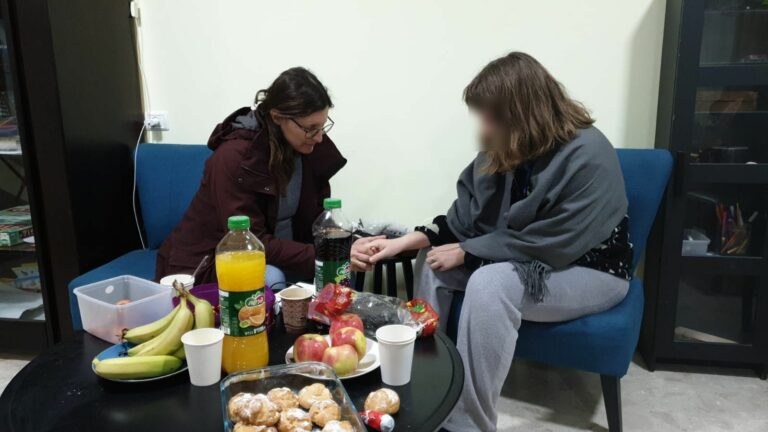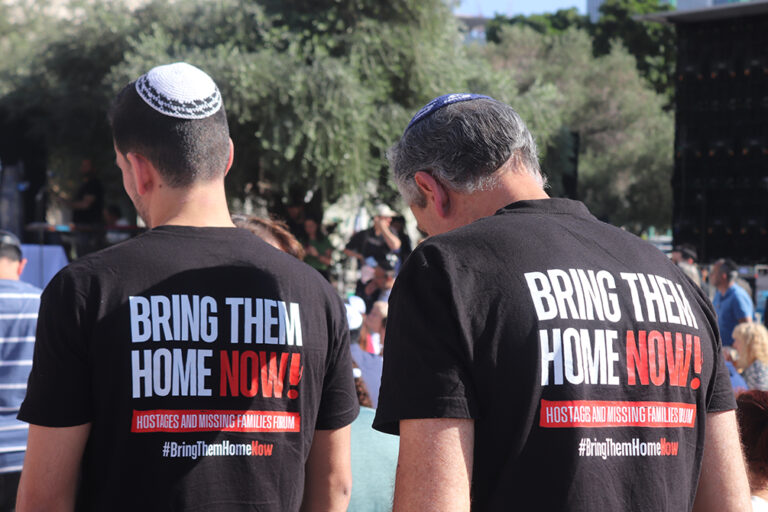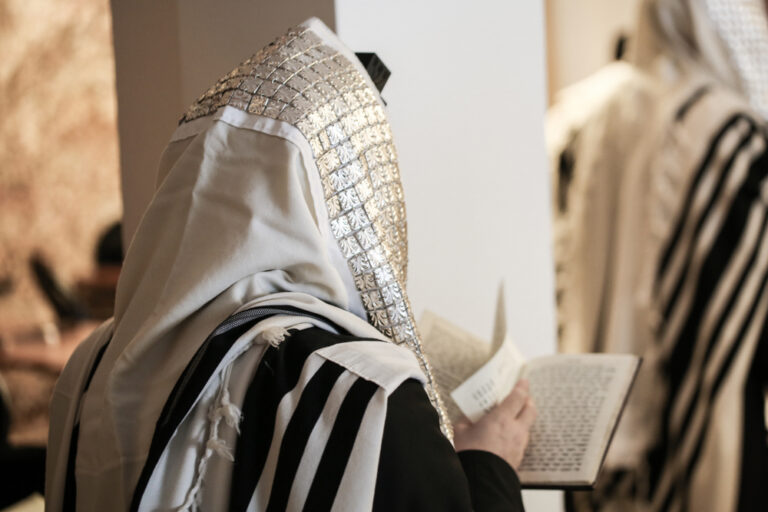Adapted from a report by Laurina Driesse

A little haven in the south of Israel is restoring hope to women in need, through a place of safety for abused, traumatised and homeless Israeli women, thanks to help from the ICEJ.
Situated in Beersheva, this sanctuary shelters Israeli women from all walks of life, each with their own unique story to tell. They are referred to the shelter by Israeli social services, or by anti-violence organisations, detox facilities, and friends or family.
The women who come to this shelter usually do not qualify for any existing social program and thus the State cannot provide for them. This includes, for example, victims of abuse who are not suffering psychiatric damage severely enough to be treated in a hospital or special hostel, yet at the same time they are not mentally stable enough to cope with normal life. They also take in women who do not qualify for a battered women’s shelter if the abusive husband is imprisoned. Often, these women may not have a roof over their head, or any other means of survival. The situation is further complicated in cases where it involves new immigrants who do not have the support of nearby family and friends. In situations like these, this special shelter steps in.
Dedicated staff work closely with social services for each woman, meeting weekly with a counselling committee to help the women solve their social and legal issues. They also prepare them for living independently.
Some women stay in the shelter only for a few days, while others may remain for up to a year or more, depending on their circumstances. This past year, 14 new women sought refuge there.
The generosity of our donors allowed the ICEJ to be instrumental in the establishment of this shelter, which not only provides a place of safety and rest, but also mentors and encourages the women.
Two stories out of many are examples of what this project is about:
Among the newest arrivals to the shelter is 67-year-old Sarah*, who fled to Israel to escape a violent husband who threatened to kill her. The shelter became a haven for her and assisted in putting her legal status and social allowances in place, as well as finding employment and preparing her for an independent life.
Meanwhile, Karen*, a new arrival in her forties, had turned to alcohol to dull the pain of living with an abusive husband. What was a tool to numb pain became an addiction. But we are excited to share that she completed the detox process very quickly and miraculously is now clean. Karen enjoys attending the shelter’s Shabbat dinners and the shelter manager, Tatyana, is dedicating much time to teaching and guiding her.
(*Names have been changed to protect privacy)



